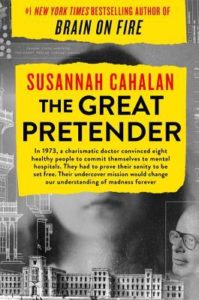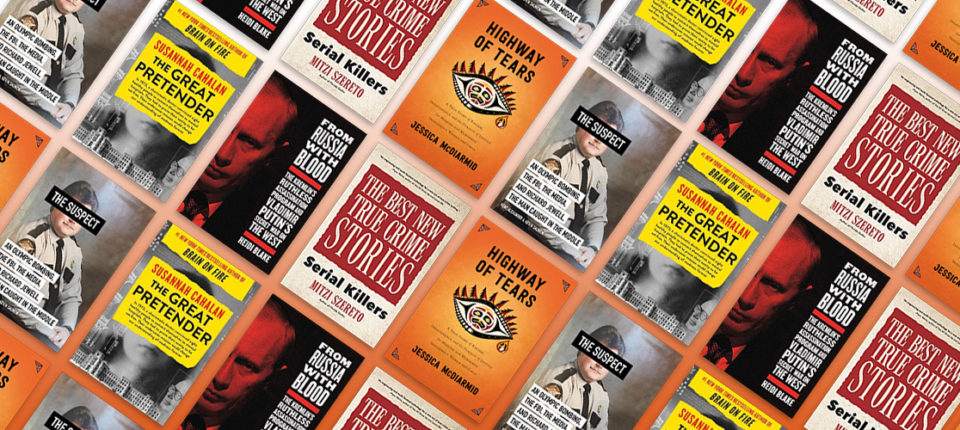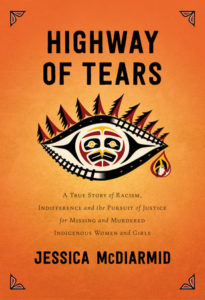These are boom days for writers and readers looking for thoughtful, hard-hitting stories about real-life crime (as well as innovative nonfiction paced as thrillers). Whether you’re in the mood for a high-octane page-turner, an investigation, or a penetrating memoir, chances are there’s a book (and many a podcast or docu-series) out there for you. Every month, we round up the best new crime non-fiction with recommendations from CrimeReads staff. Here are the selections for November:
Highway of Tears: A True Story of Racism, Indifference, and the Pursuit of Justice for Missing and Murdered Indigenous Women and Girls, by Jessica McDiarmid (Atria Books)
This is, quite possibly, the most depressing true crime book I have ever read. Over the past decades, dozens of indigenous teenage girls have gone missing or been found murdered off of the “Highway of Tears,” a 700+ mile stretch of Canada’s Highway 16 located between Prince George and Prince Rupert in British Columbia. Jessica McDiarmid, a journalist who’s been covering the story for years, takes us into a public safety crisis, where poor transportation, institutional racism, and systemic indifference have become the perfect storm, with no end or resolution in sight.—MO

The Suspect: An Olympic Bombing, the FBI, the Media, and Richard Jewell, the Man Caught in the Middle, by Kent Alexander and Kevin Salwen (Abrams)
Many of us remember the 1996 bombing at the Olympic Games in Atlanta, but only as a strange, scary episode in which over a hundred were injured and two killed. Many of us also remember the name Richard Jewell, the security guard who found the bomb; sadly, we probably remember him as the FBI’s initial prime suspect in the attack. That’s the problem at the heart of this compelling, insightful new investigative account of the bombing and the immediate aftermath. The investigation into Jewell, which more or less destroyed the man’s reputation and his life for a time, was a confluence of chaotic law enforcement efforts and a media desperate for an attention-grabbing story during the Games. This was a brief taste of the kind of mania that would drive many such investigations into terrorist activities in the years to come, but for some, it was a life-altering event. Alexander and Salwen, a former AUSA and a former WSJ reporter, respectively, bring rigor and insight to this misunderstood tragedy.—DM

The Great Pretender: The Undercover Mission That Changed Our Understanding of Madness, by Susannah Cahalan (Grand Central)
Susannah Cahalan, author of Brain on Fire, a memoir detailing her own traumatic experiences with misdiagnosis and subsequent battle with a rare brain disease, is zooming out to capture the big picture in her new book The Great Pretender, about a 1970s experiment where several “sane” people committed themselves to mental hospitals, attempted to prove themselves sane, and instead emerged with a number of new symptoms of psychological distemper. The undercover aspect to the original experiment makes this work of psychological history also feel kinda like a thriller.—MO
The Best New True Crime Stories: Serial Killers, ed. Mitzi Szereto (Mango)
As true crime experiences one of its periodic swells, there are more good writers than ever before focusing their attention on the form. In this new anthology, editor Mitzi Szereto collects some of the day’s very best true crime writing focused on one (troubling, fascinating, compelling) strand of the crime world: serial killers. The essays and articles in the collection approach the phenomenon from many different angles, exploring the social, historical, and the tragic particulars across eras and regions. Highlights from the collection include contributions from Craig Pittman (whose work you can find here on CrimeReads, most recently on author Charles Willeford), Martin Edwards, Marcie Rendon, and Vicki Hendricks.—DM

From Russia with Blood: The Kremlin’s Ruthless Assassination Program and Vladimir Putin’s Secret War on the West, by Heidi Blake (Mulholland)
While the Russian impulse to kill dissidents from afar is certainly not new (see Trostsky), the punitive reach of the Russian secret service has only expanded since the end of the Cold War. In her new book, Heidi Blake looks at how Western governments have been strategically ignoring Russian killings of expats and dissidents since the dissolution of the Soviet Union, and helps us understand the mechanisms through how these events have been kept so hush-hush.—MO



















